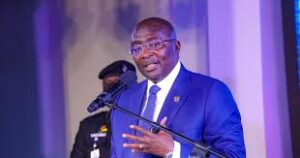Caution Urged for Assembly Members Over Public Rejection of Presidential Appointees

Assembly members across the country are being cautioned against the public dismissal of individuals nominated by the President for key local government positions. According to Dr. Richard Fiadomor, a respected local governance expert and President of the Chamber for Local Governance (ChaLoG), any dissatisfaction with a President’s nominee must be handled strictly through constitutionally mandated procedures—not through public protests or statements.
“It is not the role of assembly members to dictate who the President nominates. Their responsibility is to either confirm or reject the nominee through a formal voting process—not to challenge the decision publicly,” Dr. Fiadomor said in an interview with Daily Graphic.
The warning comes following President John Dramani Mahama’s nomination of 152 individuals for positions as Metropolitan, Municipal, and District Chief Executives (MMDCEs) in 13 out of the country’s 16 regions. So far, 109 of the 261 MMDCE positions remain unfilled, with key regions such as Greater Accra, Eastern, and Ashanti still awaiting the full list of appointees. Notably, only one nominee has been announced for the 43 assemblies in the Ashanti Region.
Dr. Fiadomor emphasized that once a nominee has been put forward, it is the duty of the Presiding Member in each assembly to call a General Assembly meeting where a vote on the nomination can be conducted. This, he insisted, is the only legitimate channel through which assembly members can express approval or rejection.
Ghana’s local government law requires that MMDCE nominees be confirmed by a two-thirds majority of assembly members present and voting. If a nominee receives more than 50% but less than the required two-thirds threshold, a second vote must be organized within ten days to determine the final outcome.
The governance expert warned against any attempts by individuals or groups to bypass this process. “Assembly members must not misuse their constitutional powers or attempt to interfere with the President’s exclusive mandate to nominate candidates,” Dr. Fiadomor stated.
He noted that recent years have seen increasing tension and, in some cases, public unrest surrounding the nomination and confirmation of MMDCEs. This, he believes, often stems from internal party politics rather than issues of competence or merit.
“The President relies heavily on party structures to suggest candidates, especially when he may not have a personal relationship with all potential appointees,” he explained. “Unfortunately, party executives sometimes base their recommendations on loyalty or favoritism instead of selecting the most competent individuals.”
This practice, according to Dr. Fiadomor, contributes to a breakdown in local trust and triggers resistance when nominations are announced. Assembly members, especially those with strong ties to competing factions within the ruling party, may then feel emboldened to voice their dissatisfaction publicly—an approach he firmly discourages.
He urged political parties to adopt a more transparent, inclusive, and merit-based approach to identifying qualified individuals for MMDCE roles. At the same time, he called on assembly members to respect the sanctity of the confirmation process and refrain from politicizing it.
“Let’s not allow party loyalties or internal politics to compromise the effective running of our local governance system. The assemblies are service delivery institutions, not battlegrounds for political maneuvering,” he added.
Dr. Fiadomor concluded by appealing to all stakeholders—especially assembly members—to uphold the principles of democratic governance. “Our Constitution provides clear guidelines for confirming or rejecting nominees. We must adhere to them. Publicly opposing nominees does not only undermine the process; it sets a dangerous precedent for political interference at the local level.”
His remarks serve as a timely reminder of the importance of institutional discipline and the need to preserve the integrity of local governance amid growing political polarization.






